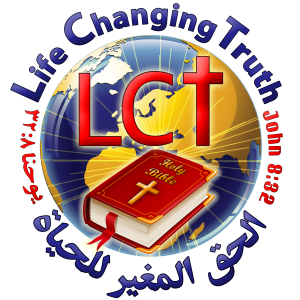How to develop relations for spiritual guidance and maturing.
Background
Mt. 28,18-20. The Great Commission implies:
Making disciples
Teaching disciples
You create what you are
2. Tim. 3,10-11
The most common reasons that Christian leaders are quitting, are burnt-out, become disillusioned, fall in different sins or redefines their calling:
Neglect meaningful spiritual discipline (63%)
Lacking accountability (53%)
Unrealistic expectations about himself/herself or ministry (48%)
Christian leaders remaining faithful in their calling have identified these keys as reasons for this:
”developed a close relationship with a mentor” (24%)
”accountability towards a peer” (24%)
”surrounded myself with persons with character in order to be supported” (11%)
Thorough studies of Christian leaders having ended their ministry with a confirmation of having finished well, reveals these characteristics:
They had a perspective on life and on ministry.
They regularly experienced times of inner renewal.
They lived a disciplined life.
They had a teachable attitude during the whole life.
They had several important mentors in life.
A definition of mentoring
Mentoring is a relational experience where a person equippes another by sharing Godgiven resources.
Biblical examples of mentor relations
Barnabas og Paul
Acts. 11,19-26
Acts. 12,25 – 13,3
Paul og Timothy
Acts. 16,1-5
Phil. 2,19-24
2.Tim. 1,4-6
2.Tim. 2,1-7
Enabling
Develop character
The character is a combination of qualities characterizing us
Our character is shown by how we react when we are under pressure.
Learn skills
Identify values
In everything that is important to me, my values shows what is most important.
My priorities
Nine types of mentoring
Disciple maker – Master
Has a responsibility to teach through theory and practice
Spiritual supervisor
A “spiritual father”
Instructor
One from whom you learn skills
Adviser
Discuss the challenges you are encountering
Teacher
Receive Teaching
Sponsor
Economical support
Contemporary role model
Models in the time we are living
Historical role models
Models in history
Divine contact
Persons God leads you in contact with in a special life situation
The 10 Commandments of Mentoring
Has to be built on a relation
Has to have a purpose
Has to be regularly
Has to be binding
Has to have an open communication
Confidence creates security
Different needs through life
Feedback is necessary
Walk through the expectations
Finnish in an orderly manner
Actualization
Who have you had a mentoring relationship with?
How did that happen?
What are your experiences from this?
Do you have a mentoring relationship now?
What can be done for it to function better?
Qualities for an effective mentor
Be a role model (2 Thess.3,9)
Be himself in order (1 Tim.3,4-5)
Fatherly Gen. 45,8)
Patient and tolerant when it comes to errors
Led by the Spirit (Rom.8,14)
Give life changing advices
(1 Thess.3,10)Experts in encouraging
(Prov.12,18)Helps his mentoree to set up challenging goals
Gives economic support when the Spirit leads
Gives new information in order to broaden the horizon
Serves together with his mentoree in God’s timing
Gives proper advices in the right time
Risks his reputation in order to give backing to his mentoree
Connects his mentoree with the right recourses
Releases to greater ministry
Not an ”avoider”
Not an “emptier”
Not a ”critic”
The Mentor and transformational leadership
An mentor asks powerful questions.
The foundation for transformational leadership is to ask rather that to tell.
Powerful questions are powerful because they make the person stop and respond from the heart.
Qualities for an effective mentoree
Cannot be ultra – sensitive
Cannot be insecure
Cannot promote himself
Cannot be disloyal
Cannot be above being a servant
Mentoring models
Star formed Leadership model
Upward mentoring
Spiritual guidance: Gives continuous discipleship training.
Couch: Models different skills.

2.Cell groups
3.Follow up of newly saved
4.Leadership training
5.Pastoral training
In ones own church
In other churches – network building
How to develop a mentoring relation
As for God’s guidance
Set up a checklist
Make an agreement
Write a summary report after each gathering
Written & taken by permission of Dr. Leif S. Jacobsen , http://www.theword.no/engelsk/indexE.htm

